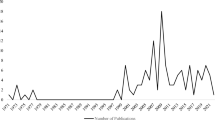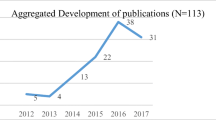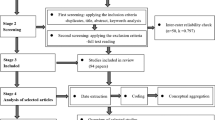Abstract
This paper examines the characteristics of match-fixing under the state monopoly sports betting system, particularly focusing on the case of the 2011 K-League scandal. Drawing from policy documentation and interview data, this study explores the precipitating factors that underpin large-scale match-fixing in South Korea. The results of the analysis reveal that first, the financial stability of the legal, monopoly betting operator attracts match-fixers for manipulation due to its guaranteed payouts. Second, the legal betting system that only offers traditional products (e.g., final match results) required fixers to mobilize a larger number of players, increasing the size of the scandal. Third, within the small community of footballers, the networks based on school ties, and the training camp culture made it easier for fixers with soccer-playing backgrounds to mobilize many active players. Finally, the follow-up measures after the scandal only targeted illegal betting operators or individual player immorality, which allowed the government to continue to play a dual role as both the operator of the sports gambling business and the protector of sport integrity.
Similar content being viewed by others
References
Tak, M., Sam, M. P., & Jackson, S. J. (2018a). The politics of countermeasures against match-fixing in sport: A political sociology approach to policy instruments. International Review for the Sociology of Sport, 53(1), 30–48.
National Sport Promotion Act, Article 24.
Ando, Y. (2017). Harmonisation and international approaches to match-fixing. In S. Steele & H. Opie (Eds.), Match-fixing in sport comparative studies from Australia, Japan, Korea, and beyond (pp. 135–156). London: Routledge.
National Gambling Control Commission. (2016). Gambling industry white paper. http://koreacasino.or.kr/e-book/ecatalog5.jsp?Dir=64. Accessed 5 May 2019.
Chang, K. S. (2010). South Korea under compressed modernity: Familial political economy in transition. London: Routledge.
Kim, K. S. (1991). The Korean miracle (1962–1980) revisited: Myths and realities in strategy and development. Notre Dame: University of Notre Dame.
Kim, H. A. (2004). Korea’s development under Park Chung Hee. London: Routledge.
Cho, Y. (2009). Unfolding sporting nationalism in South Korean media representations of the 1968, 1984, and 2000 Olympics. Media, Culture, & Society, 31(3), 347–364.
Kim, B. C. (2008). Professional baseball in Korea: Origins, causes, consequences and implications. International Journal of the History of Sport, 25(3), 370–385.
Park, W. (2009). Sports Toto’s revival and success via strategic corporate social responsibility. Korea Business Review, 13(1), 1–32.
Karstedt, S. (2010). New institutionalism in criminology: Approaches, theories and themes. The sage handbook of criminological theory (pp. 337–359). Los Angeles: Sage.
McCord, J. (2017). Beyond empiricism: Institutions and intentions in the study of crime. London: Routledge.
Hall, P. A., & Taylor, R. C. (1996). Political science and the three new institutionalisms. Political Studies, 44(5), 936–957.
Scharpf, F. W. (2018). Games real actors play: Actor-centered institutionalism in policy research. London: Routledge.
Moriconi, M. (2018). The official football match-fixing prevention discourse as a cognitive limitation (the cases of Iberian countries). Soccer & Society, 19(2), 271–287.
Hong, F., & Zhouxiang, L. (2013). The professionalisation and commercialisation of football in China (1993–2013). The International Journal of the History of Sport, 30(14), 1637–1654.
Jakarta Globe (2019, February, 21). Match fixing scandal forces shake off in Indonesian football. https://jakartaglobe.id/context/match-fixing-scandal-forces-shake-off-in-indonesian-football/. Accessed 8 May 2019.
Forrest, D. (2012). The threat to football from betting-related corruption. International Journal of Sport Finance, 7(2), 99–116.
Huffington Post (2012, March, 14). 16 South Korean volleyball, two baseball players indicted on match-fixing charges. https://www.huffingtonpost.ca/2012/03/14/16-south-korean-volleybal_n_1344219.html. Accessed 15 May 2019.
Bedard, N. (2015, May, 26). KBL head coach under police investigation for match fixing. Basketball Buddha. https://basketballbuddha.com/kbl-head-coach-under-police-investigation-for-match-fixing. Accessed 15 May 2019.
Kwon, S. W. (2012, March, 06). KBO suspends two baseball players for match-fixing. Korea JoongAng Daily http://koreajoongangdaily.joins.com/news/article/article.aspx?aid=2949453. Accessed 15 May 2019.
Kim, T. H. (2016, June, 21). Star South Korean pitcher charged in gambling case. Business Insider. https://www.businessinsider.com/ap-star-south-korean-pitcher-charged-in-gambling-case-2016-7. Accessed 15 May 2019.
Rutherford, P. (2013, September, 06). Korean league bans disgraced coach Kang Dong-hee for match-fixing. DNA India (Reuters). https://www.dnaindia.com/sports/report-korean-league-bans-disgraced-coach-kang-dong-hee-for-match-fixing-1885278. Accessed 15 May 2019.
Jackson, J. (2015, May, 26). Police investigating basketball coach over match-fixing allegations. The Korea Herald, http://www.koreaherald.com/view.php?ud=20150526001216. Accessed 15 May 2019.
Kim, R. (2011, May, 06). Incheon United goalkeeper dies. The Korea Times. https://www.koreatimes.co.kr/www/news/nation/2011/05/117_86565.html. Accessed 15 May 2019.
Kim, R. (2011, May, 30). Footballer kills himself over match fixing scandal. The Korea Times. http://www.koreatimes.co.kr/www/news/nation/2011/05/117_87973.html. Accessed 17 May 2019.
Kim, J. (2011, October, 19). Korean military team’s ex-coach found dead. UK Reuters. https://uk.reuters.com/article/uk-soccer-korea-death/korean-military-teams-ex-coach-found-dead-idUKTRE79I1AB20111019. Accessed 30 May 2019.
Moriconi, M., & Almeida, J. P. (2019). Portuguese fight against match-fixing: Which policies and what ethic? Journal of Global Sport Management, 4(1), 79–96.
Tak, M. (2018). Too big to jail: Match-fixing, institutional failure, and the shifting of responsibility. International Review for the Sociology of Sport, 53(7), 788–806.
Moriconi, M., & de Cima, C. (2019). Betting practices among players in Portuguese championships: From cultural to illegal Behaviours. Journal of Gambling Studies, 1–21. https://doi.org/10.1007/s10899-019-09880-x
Scott, W. R. (2014). Institutions and organizations: Ideas, interests, and identities (4th ed.). London: Sage.
McLaughlin, E., & Newburn, T. (2010). The Sage handbook of criminological theory. Sage Publications.
Granovetter, M. (1992). Economic institutions as social constructions: A framework for analysis. Acta Sociologica, 35(1), 3–11.
Barr-Smith, A. (2011). Sports betting: United Kingdom. In P. M. Anderson, I. S. Blackshaw, R. C. R. Siekmann, & J. Soek (Eds.), Sports betting: Law and policy (pp. 843–853). The Hague: TMC Asser Press.
Gambling Commission (2019). Gambling industry statistics. https://www.gamblingcommission.gov.uk/Docs/Gambling-industry-statistics.xlsx. Accessed 10 November.
Jones, P., Hillier, D., & Comfort, D. (2009). Corporate social responsibility in the UK gambling industry. Corporate Governance: The International Journal of Business in Society, 9(2), 189–201.
See www.betman.co.kr
Article 9, Sports Promotion Voting Rights.
Park, S. H. (2019). Problems of illegal sports gambling and measures to eradicate it in Korea. Journal of Sports and Entertainment Law, 22(1), 3–25.
Boniface, P., Lacarriere, S., Verschuuren, P., Tuaillon, A., Forrest, D., Icard, M. J., Meyer, J., & Wang, X. (2012). Paris sportifs et corruption: Comment préserver l’intégrité du sport [sports betting and corruption: How to preserve the integrity of sport]. Paris: Armand Colin.
Tak, M., Sam, M. P., & Jackson, S. J. (2018b). The problems and causes of match-fixing: Are legal sports betting regimes to blame? Journal of Criminological Research, Policy and Practice, 4(1), 73–87.
Seo, H. J., & Han, S. B. (2012). K-league match-fixing scandal and the problem of Korean sports Toto’s management. Korean Journal of Physical Education, 51(4), 45–54.
BBC Sport (2009, September, 03). Le Tissier in failed betting scam. http://news.bbc.co.uk/sport2/hi/football/teams/s/southampton/8236108.stm. Accessed 30 May 2019.
Forrest, D. (2011). Betting and the integrity of Sport. In P. M. Anderson, I. S. Blackshaw, R. C. R. Siekmann, & J. Soek (Eds.), Sports betting: Law and policy (pp. 14–26). The Hague: TMC Asser Press.
Kim, S. K. & Yang, J. G. (2011, May, 27). A former K-league player reveals all kinds of match-fixing cases in professional football games. Dong-A Ilbo. http://news.donga.com/more23/3/all/20110527/37569176/1. Accessed 30 May 2019.
Hill, D. (2015). Jumping into fixing. Trends in Organized Crime, 18(3), 212–228.
Walsh, A., & Giulianotti, R. (2006). Ethics, money, and sport: This sporting mammon. London: Routledge.
Kim, Y. J., Dawson, M. C., & Cassidy, T. (2020). Crafting a one-dimensional identity: Exploring the nexus between totalisation and reinvention in an elite sports environment. Sport, Education, and Society, 25(1), 84-97.
Song, J. H. (2011, July, 02). Yeom Dong-kyun, “The players participated to the match-fixing, Turn yourselves in and get out of the pain.” JoongAng Ilbo, p. 26. https://news.joins.com/article/5725580. Accessed 5 June 2019.
Lee, J. H. (2011, July, 07). A widespread football match-fixings… another 63 players caught. Korea Economic Daily. https://www.hankyung.com/society/article/2011070772448. Accessed 5 Jun 2019.
Kim, M. H. (2012, February, 15). Now even baseball and basketball... three reasons they fall into the match-fixing. Seoul Newspaper, p. 28.
Park, Y. S. (2011, July, 07). Why is the pro-soccer match-fixing widespread? Hierarchical order • training camp • club’s connivance. Complex action. Munhwa Ilbo, p. 8.
Powell, W. W. (1990). The transformation of organizational forms: How useful is organization theory in accounting for social change? In R. Friedland & A. F. Robertson (Eds.), Beyond the marketplace: Rethinking economy and society (pp. 301–329). New York: Aldine de Gruyter.
Chang, C. H. (2009, January, 07). Goodbye to training camp which was equal to the army, can Seongnam run this year? JoongAng Ilbo, p. 27.
Paragraph 1, Article 26.
Goffman, E. (1961). Asylums: Essays on the social situation of mental patients and other inmates. New York, NY: Anchor Books
Connor, J. M., & Mazanov, J. (2010). The inevitability of scandal: Lessons for sponsors and administrators. International Journal of Sports Marketing and Sponsorship, 11(3), 29–37.
Kim, Y. K. (2011, June, 29). Football match-fixing, focused on the “Sangmu Connection.” Hankyoreh Newspaper. http://www.hani.co.kr/arti/PRINT/485161.html. Accessed 5 Jun 2019.
Yonhap (2018, October, 17). Football player receives financial reward for rejecting match-fixing offer. The Korea Herald. http://www.koreaherald.com/view.php?ud=20181017000582. Accessed 11 Jun 2019.
Ha, S. Y. (2011, November, 24). NGCC-Sports Toto Co., Ltd. Running “Campaign to eradicate illegal sports betting.” Chosun Ilbo. http://news.chosun.com/site/data/html_dir/2011/11/24/2011112400812.html. Accessed 5 Jun 2019.
Song, Y. D. (2011, May, 30). K-League’s clean campaign for every game. Financial News. https://entertain.naver.com/read?oid=014&aid=0002447175. Accessed 5 Jun 2019.
Paragraph 2, Article 47.
Park, C. J. (2012, February, 17). An amendment to the National Sports Promotion Act promulgated a drastic increase in punishment for illegal sports betting. Chosun Ilbo. http://news.chosun.com/site/data/html_dir/2012/02/17/2012021701468.html. Accessed 10 Jun 2019.
Yoon, S. W. (2011, May, 31). K league, how to proceed with follow-up measures for match fixing? Best Eleven. https://sports.news.naver.com/general/news/read.nhn?oid=343&aid=0000010958. Accessed 11 Jun 2019.
Lee, P. C. (2017). Understanding the match-fixing scandals of professional baseball in Taiwan: An exploratory study of a Confucianism-oriented society. European Sport Management Quarterly, 17(1), 45–66.
Yonhap (2018, December, 04). Fair play pays. Korea JoongAng Daily. http://koreajoongangdaily.joins.com/news/article/article.aspx?aid=3056406. Accessed 17 Jun 2019.
Kwon, K. B. (2009, June, 12). Reasons for strongly opposing the introduction of “electronic card system” in the sports world. Joy News 24. http://www.joynews24.com/view/421571. Accessed 17 Jun 2019.
Moriconi, M., & de Cima, C. (2019). To report, or not to report? From code of silence suppositions within sport to public secrecy realities. Crime, Law and Social Change, 1–22. https://doi.org/10.1007/s10611-019-09875-0
Hill, D. (2010b). A critical mass of corruption: Why some football leagues have more match-fixing than others. International Journal of Sports Marketing and Sponsorship, 11(3), 38–52.
Author information
Authors and Affiliations
Corresponding author
Additional information
Publisher’s note
Springer Nature remains neutral with regard to jurisdictional claims in published maps and institutional affiliations.
Rights and permissions
About this article
Cite this article
Han, S. Match-fixing under the state monopoly sports betting system: a case study of the 2011 K-League scandal. Crime Law Soc Change 74, 97–113 (2020). https://doi.org/10.1007/s10611-020-09888-0
Published:
Issue Date:
DOI: https://doi.org/10.1007/s10611-020-09888-0




